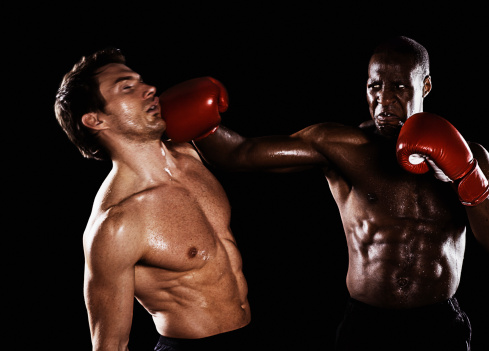Scientists in many fields have been working hard at developing simple tests that can diagnose Traumatic Brain Injury (TBI). Field CT scans, blood tests and neurological tests have all been used with limited success. New research reveals a simple, two-minute reading test that may quickly and accurately test for a concussion.

How Does the Test Work?
The King-Devick (K-D) exam, originally used to identify reading disorders in young children, uses visual function as a measure of brain activity. In other words, if a patient exhibits decreased eye movement, there is a greater chance that he has sustained a concussion from the brain injury.
The study, reported in the American Academy of Neurology publication Neurology Today, examined boxers and martial arts athletes before and after matches to see if there was a noticeable change in their test results. The test consists of standardized tasks like speed-reading numbers arranged left to right in a zigzag pattern on printed cards. To prepare participants, there is one practice card before the three test cards are presented.
Reading Test Study Results
Researchers began with individuals who clearly suffered traumatic brain injuries as witnessed by a doctor with experience in sports trauma who was sat ringside during the fights. They analyzed 39 fighters who fought for three rounds, a total of nine minutes. The athletes used gloves and standard approved headgear. They were tested 15 minutes before the fight and again after the fight ended.
The results showed that test scores were worse for all eight of the fighters who suffered from severe head trauma during the fight when compared with the other 31 fighters who did not show any signs of injuries. In fact, the four participants who completely lost consciousness showed the worst scores between the test before the fight and the test after. In the absence of injury, these scores should have stayed the same, or even improved, as participants typically perform better each time they take the test. Those with head trauma took an additional 5 seconds or more to complete the post-fight test.
What Do Doctors Think?
Neurologist Jeffrey S. Kutcher, MD, is an assistant professor of neurology at the University of Michigan-Ann Arbor. He is also director of the Michigan Neurosport Program. “With the test measuring a disruption of the ability to track visually, it makes sense that the K-D test would be applied to concussion,” said Kutcher. He warned, however, that the test might not be as effective if performed too long before an injury, such as before the start of a sporting season. Studies are needed on this scenario before can we know if the test will successfully diagnose TBI in a real world setting. Until then, such tests should not be the only measure used to diagnose concussion.
Contact Us
If you are suffering from a traumatic brain injury or know of someone who is, contact our office for a free consultation of your case. The time available to file a claim is limited, so it is important to contact us quickly. Our attorneys will work with you to be sure you are fairly compensated for your injuries.


